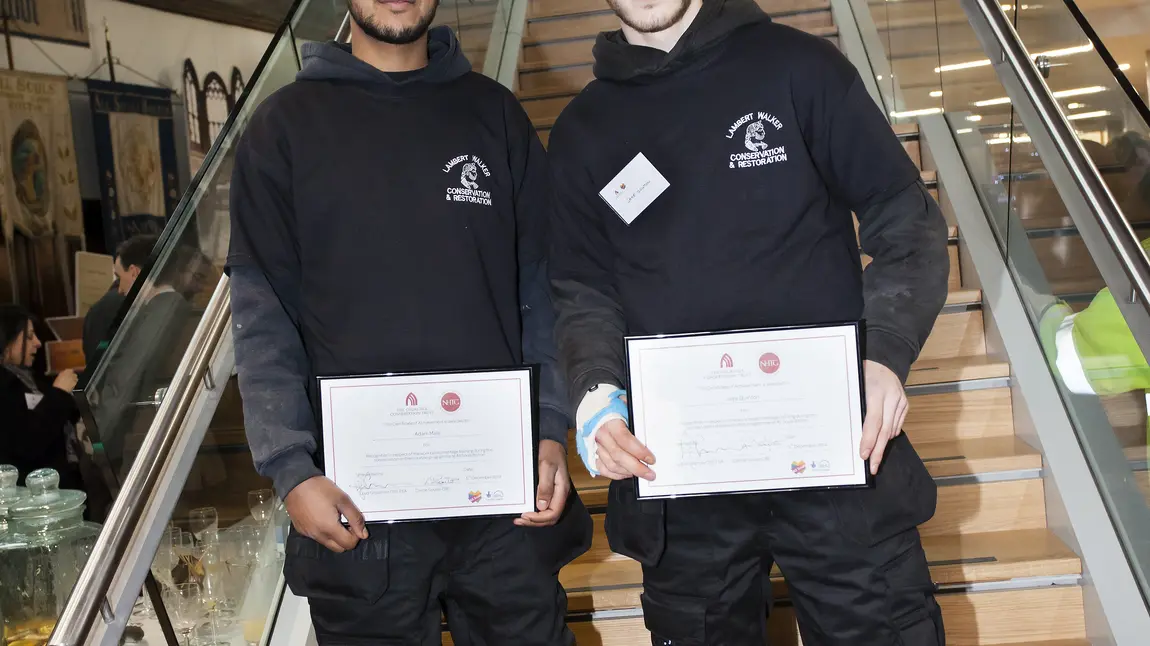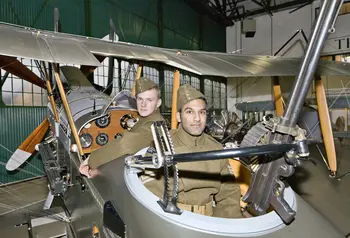Developing skills through heritage apprenticeships

Building an apprenticeship into a long-term capital project creates a win-win situation. Young people, some of whom might not have considered the heritage sector as a career option, learn while they earn, while bringing fresh thinking to the workplace. This helps grantees achieve one of our outcomes: "with our investment, people will have developed skills", while addressing the well-documented skills shortage in the heritage sector.
Apprenticeships combine practical training with study. In paid roles, apprentices learn job-specific skills working alongside experienced staff, and at the same time study to gain nationally-recognised qualifications.
In recent years, we have been pleased to see an increase in the number of applicants seeking to support apprentices. Currently, over 60 capital projects include an apprenticeship opportunity. Some are hosted by the grantee organisation, while others are employed by their contractors. Examples include:
London Transport Museum - Battle Bus
As part of the London Transport Museum’s battle bus restoration project, apprentices Gianna Fiore and Harry Young worked towards a Level 2 Award in Cultural Heritage. They have played a vital role in helping the public connect with the project through a range of activities including developing an exhibition, leading behind-the-scenes tours, and planning an outreach volunteering programme. Gianna’s blog post describes some of her work on the project.
RAF Museum Hendon - First World War in the Air exhibition
Baljit Singh Badesha and Brendan O’Gorman are Apprentice Aircraft and Vehicle Conservation Technicians at the RAF Museum in Hendon. They played a pivotal role in the development of the First World War in the Air exhibition and are working towards becoming qualified Conservation Technicians.
All Souls, Bolton
[quote=Adam Mala, apprentice]“I’m interested in buildings and their features so stonemasonry seemed like a good option… I’m really glad I gave it a try.”[/quote]
Adam Mala, Adam Royston and Jake Quinton trained in stone masonry on the All Souls, Bolton project, which saw a redundant church transformed into a new community centre.
The young trainees were in different personal situations when they were accepted onto the training programme, though each of them had reached a point where they were looking for a new career.
Initially offered a four-month traineeship funded with an HLF bursary through the National Heritage Training Group’s Skills for the Future project, they were managed by conservation specialists Lambert Walker. Lambert Walker were so impressed with their work, they offered all three year-long apprenticeships to help further support their career in stone masonry.
These examples demonstrate a clear link between the provision of high-quality training, and the creation of a sustainable and diverse workforce. When thinking about your next HLF project, why not look for opportunities to build in work-based training? Our good-practice guidance can help you think about an application to HLF for a project that seeks to help young people develop key skills.


